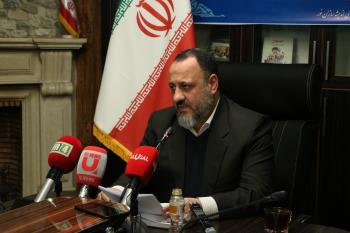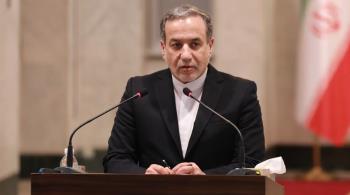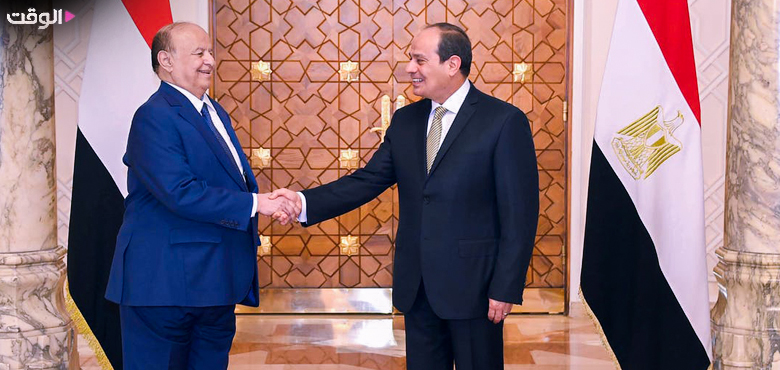Alwaght- Over the past few months, Egypt showed growing interest in the Yemeni developments. Cairo’s invitation of the prime minister of the government of resigned President Abdrabbah Mansour Hadi in July, and the meeting of the non-resident Egyptian ambassador with the head of the separatist Southern Transitional Council (STC) this month, and invitation to Cairo of the exiled government including the ministers of oil, international cooperation, communications, transportation, and public health and population are the most important parts of the Egyptian diplomatic measures. Observers suggest that these moves bear signs for growing Egyptian willingness to play a role in Yemen and boost its presence in Red Sea’s south amid concerns about increasing threats to its national security especially those stemming from the broadening Turkish intervention in the region.
Al-Arabi Al-Jadeed recently broke the news about holding of meetings between the officials of the Egyptian intelligence service and a delegation of Yemeni Ansarullah Movement’s leaders at the request of the Egyptian side, with the aim of “reviewing” the developments in Yemen. According to media reports, the meeting discussed the movement’s recent drone strikes on Saudi Arabia and the possibility of reaching a political solution that would end the Yemeni crisis. Ansarullah is a revolutionary movement in control of the capital Sana’a and the north.
As a military and political power in the Arab world, Egypt has traditionally had a history of active participation in the developments in Yemen, dating back mainly to Cairo's support for the Socialist Republic of Southern Yemen before the unification of the north and south in the 1990s.
But why is Egypt now having growing interest in more involvement in Yemen developments and essentially how can we draw the nature of its role?
Egypt’s interests in Yemen developments
Egypt’s intensification of moves to work with the internal Yemeni actors is expressive of its interest to speed up its involvement in Yemen developments to help enhance its position in the region. What makes Yemen strategically important for Egypt in terms of strategic depth, national security, and sphere of influence is, above all, security concerns to protect the Bab-el-Mandeb Strait and curb the growing influence of rival regional powers such as Turkey.
The strategic Bab-el-Mandeb Strait is of great importance to Egypt. Egyptian officials have earlier said that Egypt will not tolerate any intervention in the strategic waterway, which connects the Suez Canal to the Gulf of Aden and the Arabian Peninsula via the Red Sea. In one of his interviews as a presidential candidate, General Abdel Fatah el-Sisi called the Red Sea "Arab Sea" and said that the deployment of the Egyptian Marines as "its police" should not be considered a foreign military intervention. El-Sisi also said in another speech that the strait is “a matter of national security of Egypt and the Arabs."
However, maintaining close ties with the Persian Gulf states, especially Saudi Arabia, which are Cairo's financial backers and trading partners, is another part of Egypt's interest in determining its policy in Yemen field.
El-Sisi, who came to power in a coup backed by the Saudi and UAE intelligence services, said in his first post-election speech that he would follow an Egyptian political tradition that considers the security of the Persian Gulf inseparable from the national security of Egypt. Saudi Arabia's relations are particularly close and flexible, especially with the Egyptian military. Joint military exercises and visits continued even when political relations between the two countries were strained under the short-lived Muslim Brotherhood-led government of President Mohamad Morsi, of which el-Sisi was defense minister.
But, as in most regional cases in which Egypt has been willing to engage, the element of confrontation of Turkey is an undeniable part of Egypt’s interest in engaging in Yemen developments. Direct Turkish intervention in Yemen or through its proxies in Muslim Brotherhood-aligned Islah Party by funding militant camps in Taiz to get a foothold in the Gulf of Aden and Red Sea vicinity, and most importantly leading the Combined Task Force 151 (CTF-151), a multinational anti-piracy coalition, in the Gulf of Oman, Somalian coasts, and Indian Ocean, have proven alarming to the Egyptian leaders. On January 25, Turkey extended its air force and navy mission in the CTF-151 areas of coverage for a year.
Turkish long leap to restore its historical place in Arab world
After a decade of internal turmoil, Egypt is seeking to regain its past role as a major regional actor.
Growing domestic stability, improving economic prospects and recent de-escalation across the region have boosted Cairo's sense of self-confidence.
In the past, Egypt was one of the key players in West Asia region’s developments. Thanks to its size, geographical location and military power, it could influence many regional developments. But this position was lost over the past decade, and Egypt has been relatively absent in regional diplomacy. During this period, political turmoil at home and its ailing economy, as well as grappling with terrorism challenges in the Sinai Desert, diverted Cairo's attention from foreign policy as a one-time top priority. During this period, domestic politics, especially el-Sisi's anti-Islamist politics and years of efforts to eliminate the Muslim Brotherhood from political, social and economic scenes in Egypt, shaped the country's foreign policy lines. Egypt’s involvement in Saudi-led blockade against Qatar, a bankroller of the Muslim Brotherhood, is an indication of this foreign policy.
Over the course of a decade, Egypt has predominantly moved behind smaller but wealthier countries such as the UAE which have been involved in fierce competition with Qatar. But regional and international developments, including the gradual US withdrawal from West Asia, de-escalation with Turkey, end of Saudi-Qatar crisis, presentation of roadmap to Libya peace, and efforts for Yemen peace negotiations, over the past year have changed the attitude of Cairo leaders, making them mobilize foreign policy to regain Egypt’s historic position as a powerful regional player.
Egypt's partnership with the UAE, and of course Saudi Arabia, has never been an unconditional alliance. Despite their common ideology, Egypt and the UAE have pursued different foreign policy goals over the past decade - and sometimes with conflicting agendas. For example, Cairo in 2015 refused to send troops to support the Arab coalition in Yemen. Egyptian military leaders were adamant in their opposition to the request, as they remembered the legacy of the Yemeni war in the 1960s, in which thousands of Egyptian troops were killed. Since his presidency start, el-Sisi supported the Syrian President Bashar al-Assad, going against the will of the Persian Gulf Arab monarchies. Since last year, he has been working to revive an old “Levant” bloc covering Egypt, Jordan, Iraq, and Syria. Trade and energy cooperation stood as a launching pad to political engagement.
“Return of Egypt” is a message the Egyptian officials want to send to world countries. Change in the region’s political dynamics promoted a more active Egyptian foreign policy.
Undoubtedly, trying to restore its historical role in Yemen developments is another part of the strategy of restoring Egypt's position as a major power in the Arab world. As part of its efforts to activate its role and restore its position in Yemen, Egypt seeks to strengthen ties with past allies and expand the circle of local friends, and wants to advertise itself as a reliable ally. For example, evidence suggests that Cairo is working to support some political figures in Islah Party, including the current Prime Minister Maeen Abdulmalik Saeed and Parliament Speaker Sultan al-Burkani, both of whom are against the growing Turkey and its allies’ influence in Islah Party.
According to a statement published by the Egyptian foreign ministry about the key results of several visits of Hadi government’s officials to Cairo, the Egyptian government agreed to help the fugitive officials with rehabilitation of government institutions and work with Aden-based cabinet in energy and transportation. The Egyptian army sent two planes carrying medical aids to help Aden tackle the coronavirus pandemic.
Also, the meeting of the Egyptian ambassador to Saudi Arabia with Aidarus al-Zubaidi, the head of STC, which aimed to encourage the cooperation between the separatist council and Hadi, signals Cairo’s attention to simultaneously maintaining the ties with the southerners who are now eying support from their old ally and backer Egypt for potential independence declaration.
Egypt Yemen role outlook
The snowballing Turkish involvement in the Yemeni conflict, including support for Islah-affiliated armed groups, could motivate Egypt to take an active role in the war-weary country to check Turkey through supporting and training anti-Islah groups in the west coast and the south. Cairo is not very much worried about Ansarullah power gain in the west coast as the movement regularly sends signals of assurance to the Egyptians about Sana’a’s care about the Egyptian national security and interests through maintaining the freedom of navigation to and from Suez Canal.
Despite nominal participation in the Arab coalition and condemnation of retaliatory Yemeni attacks on the military and economic sites in Saudi Arabia, Cairo continues its mediation among various Yemen war actors. To this end, Egypt seems to continue its contact channels with Ansarullah. In December 2020, Sana’a released an Egyptian captain held for 10 months following negotiations with Cairo. In February of the same year, it had released 32 Egyptians, and tens in the past years.
The Saudi struggle to move out of Yemen war swamp can grant Cairo the opportunity to transform into an active mediator in Yemen’s developments along with others like Oman and Jordan.



























